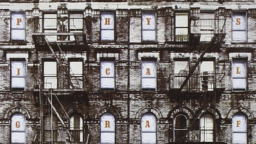The Department of Justice has backed Robert Plant and Jimmy Page of Led Zeppelin in their long-running Stairway To Heaven copyright battle with the estate of Spirit guitarist Randy Wolfe.
In a rare show support by the US Government in a copyright case of this nature, the DOJ filed an amicus brief (friend of the court brief) on Thursday (August 15) stating, amongst other things, that “the allegedly infringing work is not virtually identical”.
The lawsuit, brought by Randy Wolfe estate trustee Michael Skidmore in 2014, accused Plant and Page of ripping off the opening riff for their classic ’70s song from an instrumental track called Taurus by Wolfe’s band Spirit. The lawsuit sought recognition, plus a share of the royalties earned.
Plant and Page were cleared of copyright infringement in June 2016 after a six-day trial, in which a jury in LA ruled that they were not guilty.
At the time, a spokesperson from the band’s label, Warner Music Group, said: “At Warner Music Group, supporting our artists and protecting their creative freedom is paramount.
“We are pleased that the jury found in favour of Led Zeppelin, re-affirming the true origins of Stairway to Heaven.
“Led Zeppelin is one of the greatest bands in history, and Jimmy Page and Robert Plant are peerless songwriters who created many of rock’s most influential and enduring songs.”
The DOJ’s support last week follows the news in June 2019, as reported by Reuters, that the US Appeals Court would revisit the case after a Ninth Circuit three-judge panel ruled 3-0 in September 2018 that “erroneous jury instructions” were provided by the judge in the 2016 trial, and namely that the jury weren’t played the recordings of Taurus or Stairway To Heaven.
Spirit’s song was written in 1967, so the judge ruled at the time that only the sheet music was protected under pre-1972 copyright law, according to NBC News.
The brief filed by the DOJ last week urges that “the copy of the work deposited with the Copyright Office defines the scope of the copyright” and that “the district court’s judgment in favor of defendants should be affirmed because the relevant portion of the copyrighted work is entitled, at most, to a thin copyright, and the allegedly infringing work is not virtually identical”.Music Business Worldwide





